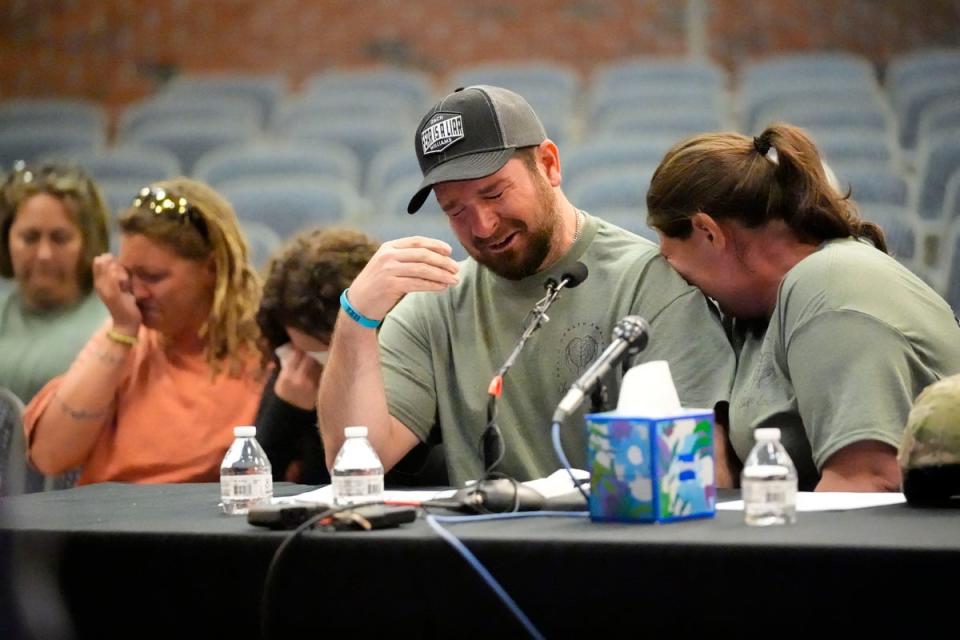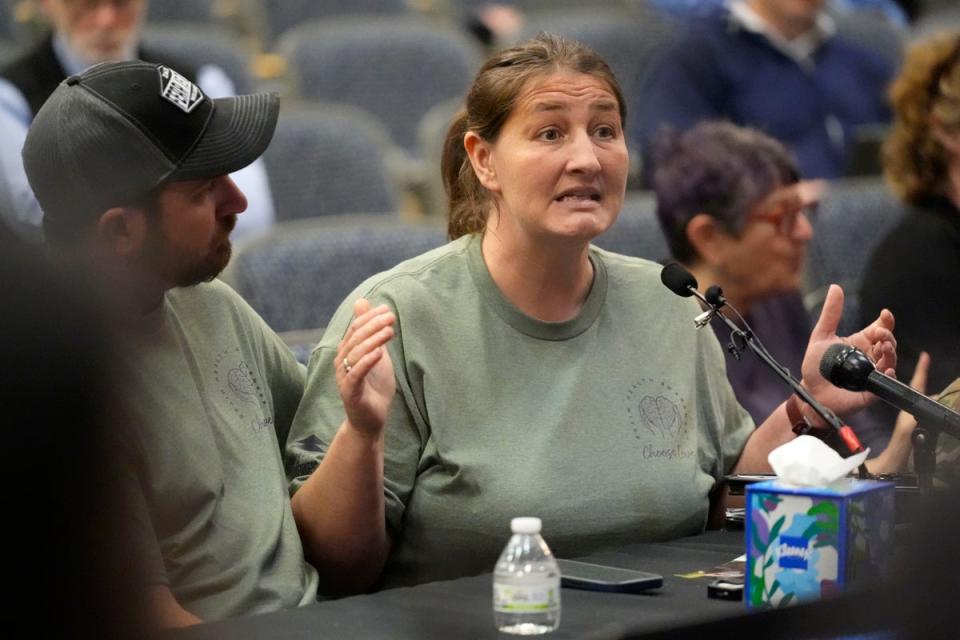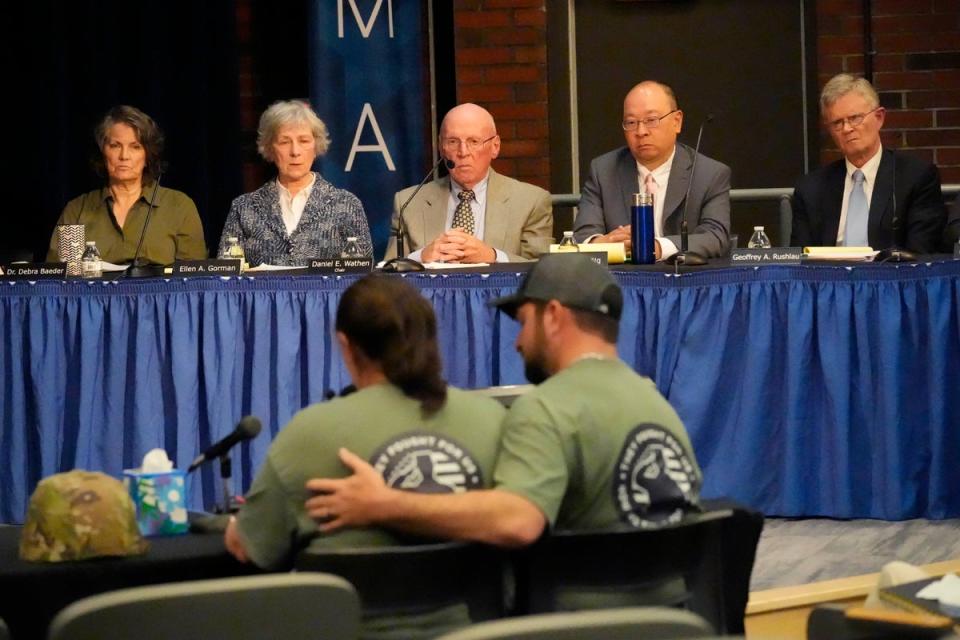Maine mass shooter had ‘severe’ traumatic brain injury from time as grenade instructor, family tells commission
The family of an Army reservist who killed 18 people in a horrific mass shooting in Maine last October say that his brain was “hijacked” by a severe traumatic brain injury.
Testifying before a state investigative committee, the family of 40-year-old Robert Card, who was found dead from a self-inflicted wound days later, said that he had a “severe” traumatic brain injury relating to his military service.
His family said they donated the hand grenade training instructor’s brain to the Boston University CTE Centre, who said in March there was “likely” brain injury, with the findings similar to previous studies on the effects of blast injuries.
"We have discovered that Robbie had a severe, a severe traumatic brain injury," James Herling, the gunman’s brother-in-law, told the independent commission, according to a report by CBS News.

"My brother-in-law was not this man — his brain was hijacked," Mr Herling added during his emotional testimony.
Mr Herling suggested that while Card “was not an active soldier, he was a reservist,” but said that “his brain was not healthy, and no one knew."
The family members also claimed in their testimony that those who studied Card’s brain said it was "one of the worst" cases they had seen, even when comparing it to military personnel who had served in Afghanistan and Iraq.
Nicole Herling, the gunman’s sister, testified that she noticed changes in her brother in the months leading up to the massacre, but always thought he was more of a threat to himself rather than others, as he displayed paranoid behaviour and started pushing his loved ones away.
She said that he was particularly paranoid that people at his job at the recycling centre were speaking negatively about him.

"I wish I had done everything in my power to get him the help he needed," Ms Herling said. "He didn’t believe me when I said he was sick, not crazy."
The shooter was admitted to a mental health institution in early 2023 after having auditory hallucinations. His family said they were becoming increasingly worried about him as he displayed signs of aggression.

An Army spokesperson said Thursday that the Army “is committed to understanding how brain health is affected and to implementing evidence-based risk mitigation and treatment” and that this year, they will be conducting cognitive assessments of trainees that can be repeated to identify changes.
Card allegedly entered two locations in the town of Lewiston, Maine, last October and opened fire, killing 18 people and injuring 13 others.
After a two-day manhunt to find Card, his body was found in a box trailer in an overflow lot of a recycling centre where he used to work, with authorities believing he took his own life.


